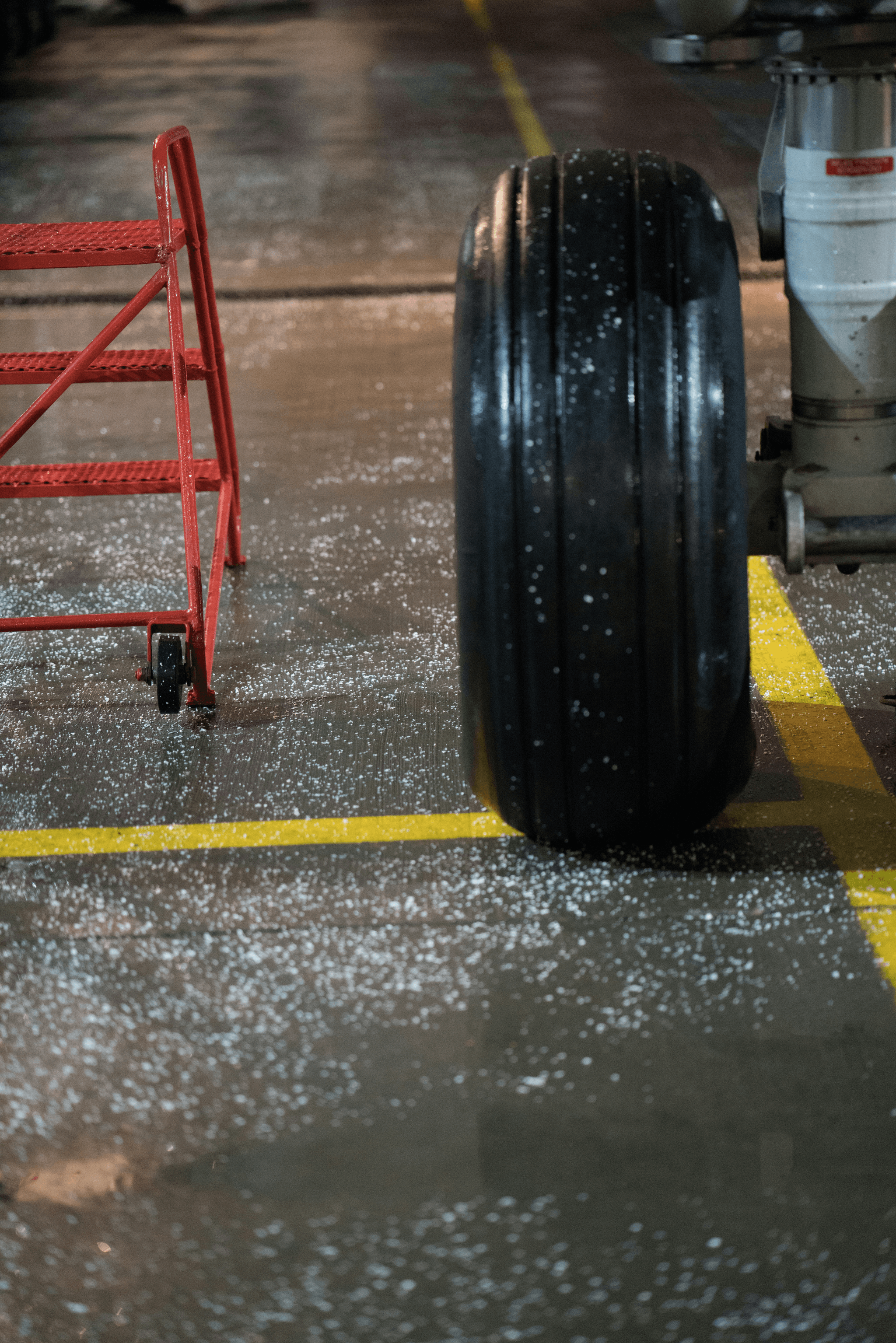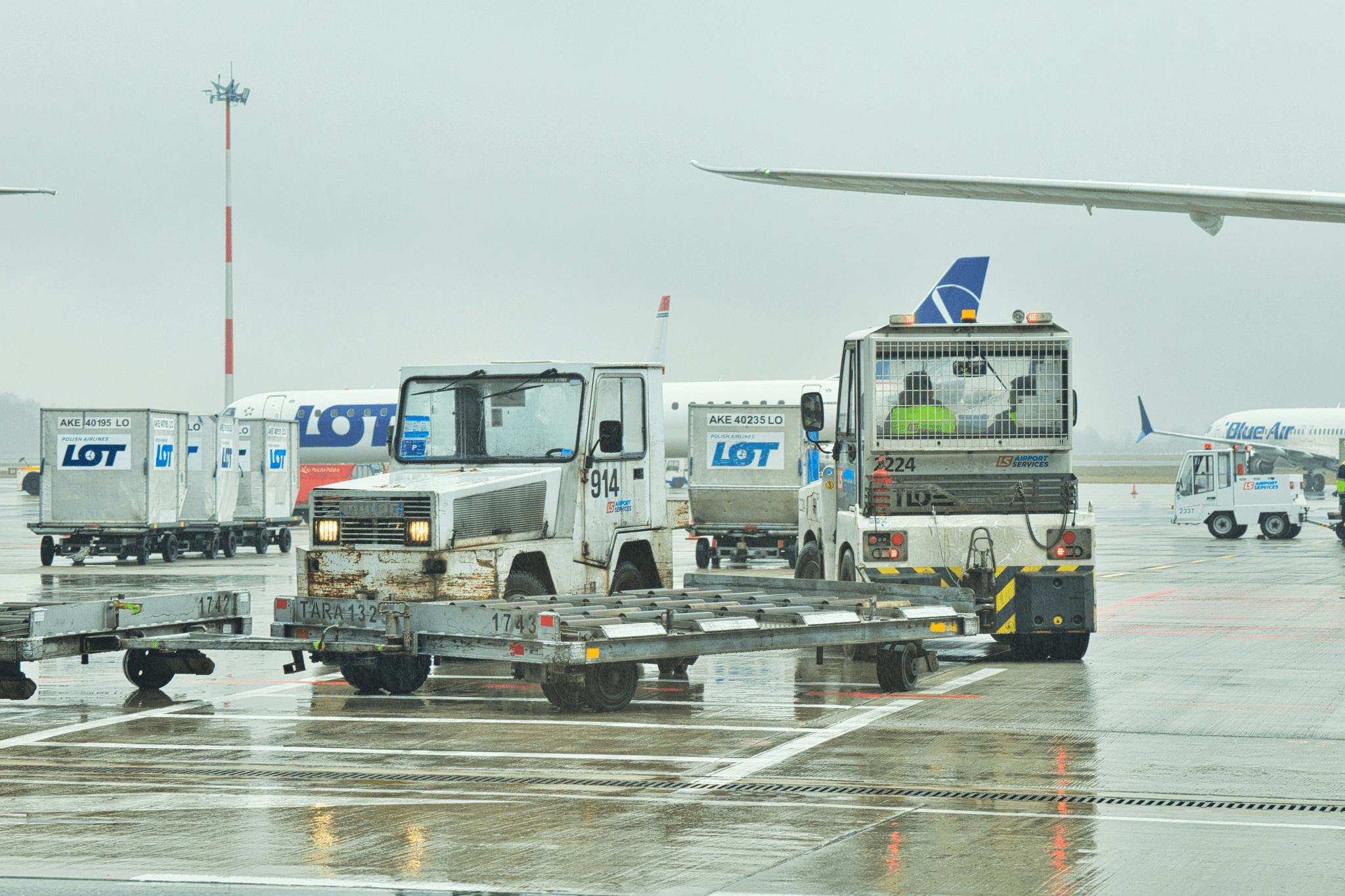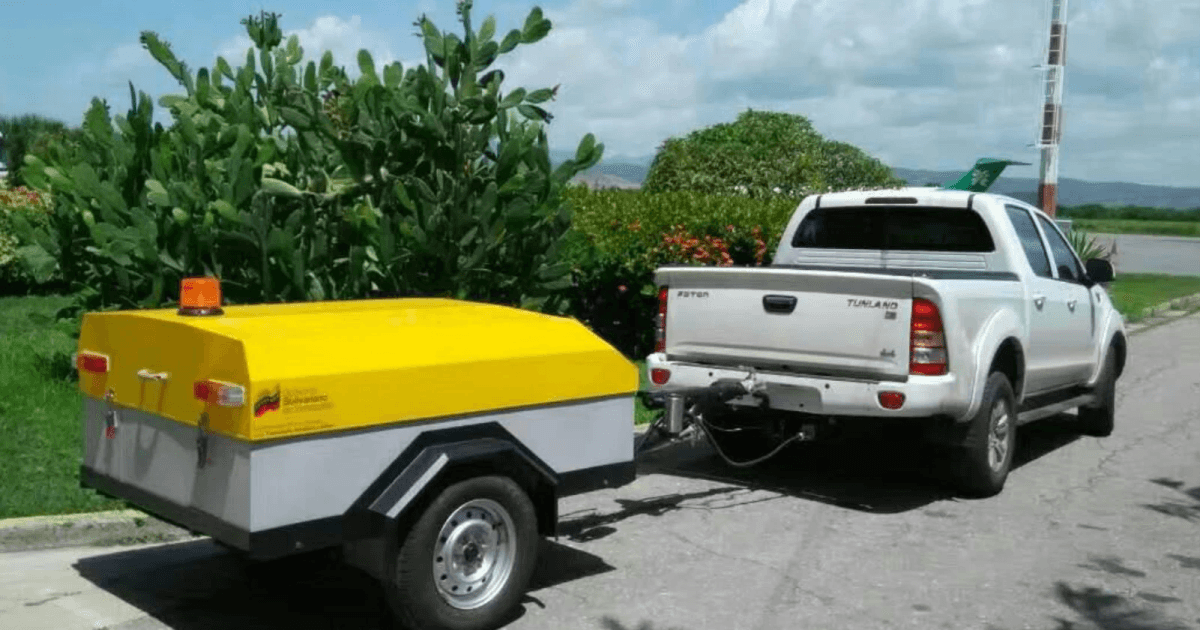Introduction

When it comes to ensuring the safety and efficiency of airport operations, friction testing for runways plays a crucial role. This process involves measuring the friction between the runway surface and aircraft tires, which is essential for safe landing and takeoff. Friction testing trucks are essential for this purpose, as they provide accurate measurements that directly impact aircraft performance and overall runway safety. The benefits of accurate friction measurement cannot be overstated, as it directly contributes to the prevention of accidents and ensures smooth operations at airports worldwide.
Importance of Friction Testing for Runways
Friction testing for runways is crucial in maintaining safe conditions for aircraft operations. By measuring the level of friction between the runway surface and aircraft tires, airports can ensure that planes can land and take off without any issues. This is especially important during adverse weather conditions, where low friction can lead to dangerous situations. Therefore, having reliable friction testing solutions in place is essential for maintaining runway safety.
Friction testing trucks are essential for providing accurate and reliable data on runway conditions. These specialized vehicles are equipped with sensors and instruments that can measure the friction coefficient of the runway surface, allowing airport authorities to make informed decisions about necessary maintenance or treatment. Without these trucks, airports would have to rely on less precise methods for assessing friction, potentially compromising the safety of aircraft operations.
Why Friction Testing Trucks are Essential
Friction testing trucks are indispensable tools for accurately measuring runway friction. These specially designed vehicles are equipped with advanced technology and specialized equipment to perform precise measurements on airport runways. Their ability to provide real-time data on friction levels allows airports to make informed decisions regarding aircraft operations, contributing to overall safety and efficiency.
In addition, friction testing trucks play a crucial role in maintaining runway safety and preventing accidents. By accurately measuring the friction levels on airport runways, these vehicles help identify areas that may be prone to skidding or slipping, allowing airports to take proactive measures to address potential hazards. This proactive approach not only enhances safety for aircraft operations but also minimizes the risk of delays and disruptions caused by runway incidents.
Benefits of Accurate Friction Measurement
Accurate friction measurement also plays a crucial role in the maintenance of airport infrastructure. By identifying areas with low friction, airports can prioritize resurfacing and maintenance efforts to ensure that runways remain in optimal condition for aircraft operations. This proactive approach helps to prevent potential safety hazards and minimizes the need for emergency repairs, ultimately saving time and resources for airport authorities. Additionally, by maintaining high friction levels, airports can extend the lifespan of their runways and reduce long-term maintenance costs.
The Role of Friction Testing Trucks in Airport Safety

Friction testing trucks play a crucial role in ensuring safe landing and takeoff for aircraft. By measuring the surface friction of runways, these trucks provide essential data for pilots to make informed decisions during critical moments.
Ensuring Safe Landing and Takeoff
Friction testing trucks are essential for assessing the runway conditions and ensuring safe landing and takeoff for aircraft. By accurately measuring the friction coefficient of the pavement, these trucks help determine if the runway is suitable for aircraft operations, especially during adverse weather conditions.
Friction testing trucks play a crucial role in maintaining the safety and efficiency of airport operations. By providing accurate measurements of the friction coefficient of the pavement, these trucks enable airports to make informed decisions about whether it is safe for aircraft to land and take off. This is particularly important during adverse weather conditions, such as heavy rain or snow, when the risk of skidding or sliding on the runway is heightened.
Impact of Friction on Aircraft Performance
The friction between an aircraft's tires and the runway directly impacts its performance during takeoff, landing, and taxiing. Low friction levels can lead to reduced braking efficiency and potential skidding, posing significant risks to aviation safety.
Importance of Reliable Friction Testing Solutions
Reliable friction testing solutions play a critical role in ensuring the safety of aircraft operations. By providing accurate measurements, advanced machines like Haisen's BHM01/02 Surface Friction Tester enable airports to make informed decisions about runway maintenance and treatment. This, in turn, helps to minimize the risk of accidents caused by poor runway conditions, ultimately safeguarding the lives of passengers and crew members.
Understanding the Process of Measuring Friction

Measuring friction is crucial for ensuring safe runway conditions for aircraft operations. There are various methods for measuring friction, including the use of specialized friction tester machines and RFT testing trucks equipped with state-of-the-art technology. These methods provide accurate data on runway surface conditions, allowing airport authorities to make informed decisions regarding maintenance and safety protocols.
A key factor affecting friction measurement is the type of surface being tested, as different materials and textures can impact the level of friction. Additionally, environmental factors such as temperature, moisture, and contaminants can also influence friction levels on runways. It's essential to consider these variables when conducting RFT testing to obtain reliable and consistent results.
The significance of RFT testing in runway safety cannot be overstated. Accurate friction measurement plays a critical role in preventing accidents and ensuring optimal aircraft performance during takeoff and landing. By utilizing advanced technology and reliable testing solutions, airports can maintain safe runway conditions that comply with industry standards set by organizations like CAAC, ICAO, and FAA.
Haisen's BHM01/02 Surface Friction Tester Features

Safety Design and Vehicle System Maintenance
Haisen's BHM01/02 friction tester machine prioritizes safety by maintaining the original vehicle systems for optimal performance. The trunk is reinforced to securely hold the testing equipment, ensuring safe and reliable operation during runway friction testing.
Reliability and High-Precision Components
Equipped with high-precision components and an industrial-grade laptop with a Chinese interface, Haisen's friction tester machine guarantees reliable and accurate friction measurement. This ensures consistent and dependable results for airport operations.
Acceleration and Calibration Capabilities
The Haisen BHM01/02 features impressive acceleration capabilities, with vehicles like Ford Taurus 2.7T and Honda Acura reaching 96 km/h within 200 meters for efficient testing. Additionally, it comes with an accurate external electronic calibration device for easy calibration before each test.
Now that we've covered the safety design, reliability, precision components, acceleration capabilities, and calibration features of Haisen's BHM01/02 surface friction tester machine, let's delve into its computer control system and water system capacity in the next section.
Why Runway Friction Testing is Crucial for Aviation Industry

Runway friction testing is crucial for the aviation industry due to the need to comply with CAAC, ICAO, and FAA standards. These regulations require airports to regularly measure and maintain safe levels of friction on their runways to ensure aircraft safety during takeoff and landing.
Compliance with CAAC, ICAO, and FAA Standards
Compliance with CAAC, ICAO, and FAA standards is essential for airports to ensure safe aircraft operations. Friction testing trucks equipped with advanced friction tester machines like Haisen's BHM01/02 Surface Friction Tester play a vital role in helping airports meet these stringent regulatory requirements by providing accurate and reliable friction measurement data.
In addition to ensuring compliance with regulatory standards, advanced friction tester machines like Haisen's BHM01/02 Surface Friction Tester also offer the advantage of computer-controlled testing for precision. This means that airports can rely on accurate and consistent friction measurement data, allowing them to make informed decisions about runway maintenance and safety protocols. With computer-controlled testing, airports can have confidence in the reliability of their friction testing results, ultimately contributing to the overall safety and efficiency of aircraft operations.
Computer-Controlled Testing for Precision
The use of computer-controlled testing systems in friction testing trucks allows for precise measurement of runway surface friction. With Haisen's BHM01/02 Surface Friction Tester, the testing process is automated and controlled by a Chinese Windows OS laptop, ensuring accurate and repeatable results that are essential for maintaining safe runway conditions.
In addition to providing precise measurement of runway surface friction, the computer-controlled testing systems in friction testing trucks also offer real-time data analysis and reporting capabilities. This means that airport personnel can quickly and easily access the results of the friction tests, allowing them to make informed decisions about necessary maintenance and safety measures. With the Haisen BHM01/02 Surface Friction Tester, not only is the testing process automated, but the user-friendly interface of the Chinese Windows OS laptop makes it simple for operators to interpret and act on the data collected.
Water System Capacity and Testing Achievements
Haisen's BHM01/02 Surface Friction Tester features an impressive water system capacity, including a 580L/620L tank, allowing for extensive testing over distances of up to 7000 meters. This capability has contributed to the widespread adoption of Haisen's friction testing trucks at over 200 airports worldwide, including high-altitude locations where accurate friction measurement is particularly critical.
Furthermore, the BHM01/02 Surface Friction Tester's water system capacity allows for efficient and accurate testing in a variety of weather conditions, including rain, snow, and ice. This versatility is essential for ensuring the safety of aircraft operations, as it provides reliable friction measurements regardless of environmental factors. As a result, Haisen's friction testing trucks have become indispensable tools for airport authorities seeking to maintain optimal runway conditions.
By complying with international standards, utilizing computer-controlled precision testing, and achieving remarkable water system capacity and widespread adoption in the aviation industry, it's clear that runway friction testing plays a crucial role in ensuring safe aircraft operations.
Conclusion

Ensuring Safe Aircraft Operations with Friction Testing
Friction testing trucks equipped with reliable friction testing solutions like Haisen's BHM01/02 Surface Friction Tester are essential for maintaining safe landing and takeoff conditions at airports. Accurate measurements of runway friction provided by these trucks help airport authorities make informed decisions about runway maintenance and treatment, ensuring that aircraft can operate safely in varying weather conditions. By reducing the risk of accidents and improving overall aviation safety, these friction testing solutions play a critical role in protecting the lives of passengers and crew members.
Importance of Accurate Friction Measurement for Runway Safety
Accurate friction measurement is essential for runway safety as it directly impacts aircraft performance during takeoff and landing. By understanding the process of measuring friction and utilizing advanced friction tester machines, airports can effectively monitor and maintain optimal friction levels on their runways to ensure safe operations for all aircraft. In addition to using advanced friction tester machines, airports should also invest in regular training for their staff to ensure that they are proficient in using the equipment and interpreting the results accurately. This will help to minimize human error and ensure that the friction measurements are as precise as possible.
Choosing the Right Friction Tester for Airport Operations
When it comes to choosing the right friction tester for airport operations, reliability, precision, and compliance with industry standards are key factors to consider. Haisen's BHM01/02 Surface Friction Tester offers safety design features, high-precision components, acceleration capabilities, and computer-controlled testing—all essential for accurate friction measurement in compliance with CAAC, ICAO, and FAA standards.
In addition to its technical features, the Haisen BHM01/02 Surface Friction Tester also offers user-friendly operation and maintenance. With intuitive controls and easy-to-follow instructions, airport personnel can quickly and efficiently conduct friction tests without extensive training. The system's durable construction and minimal maintenance requirements ensure that it remains a reliable tool for runway safety assessment, reducing downtime and operational disruptions.
